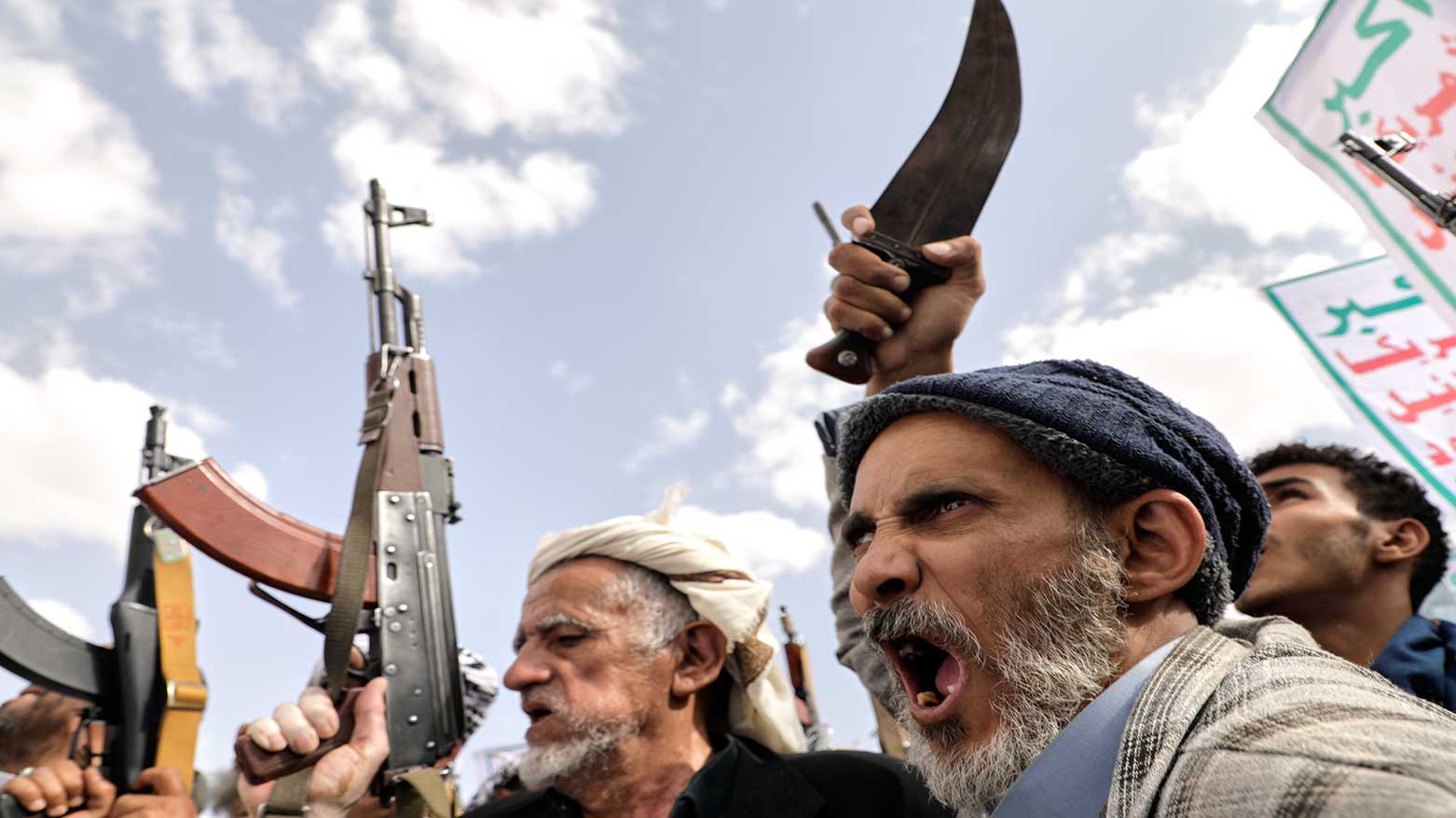Houthis Plead for Increased Iranian Support Amid Severe Financial Crisis: Report
Facing a catastrophic budget deficit, the Houthis urge Iran for urgent aid as Israeli strikes on key economic hubs cripple funding, leaving salaries unpaid and internal battlefronts under-resourced.

ERBIL (Kurdistan24) — Due to the recent intensified U.S. and Israeli airstrikes that targeted the Houthi economic and military infrastructure in Yemen, the Iran-backed group in Sanaa is facing an unprecedented financial crisis, pushing it to urgently request increased support from Tehran, according to Sky News Arabia.
Citing Yemeni sources, Sky News Arabia reported that the Houthis have formally appealed to Iran’s ambassador in Sanaa, Ali Mohammad Ramadhani, for additional military and financial aid. The request is reportedly aimed at offsetting a catastrophic operational budget deficit, particularly regarding the payment of fighters’ salaries and logistical expenses across internal battlefronts.
Mounting Budget Deficit and Economic Bleeding
According to the Sky News report, the group’s budget has nearly halved in recent months, driven by a combination of factors. These include the latest U.S. sanctions targeting Houthi financial entities, Washington’s reclassification of the group as a terrorist organization, and a string of Israeli air raids that hit vital economic assets such as Hudaydah port, oil depots, and cement factories in Bajil and Amran, as well as Sanaa airport and power stations.
“This is an economically suffocating phase for the Houthis,” said Fawaz Mansour, Sky News Arabia’s Yemeni affairs editor. “Their key revenue streams—including black market activity, port operations, and merchant taxation—have drastically declined.”
He added that Israeli strikes have gone beyond military installations, hitting critical economic hubs and thereby drying up Houthi funding sources.
Financial Exodus and Internal Discontent
The crisis has deepened as banks and financial institutions flee Houthi-controlled Sanaa for government-held Aden. According to Mansour, the Yemeni Banking Association is among the entities that have relocated, further undermining the Houthis’ grip on the domestic market.
Additionally, Sky News Arabia highlighted that the Houthis have imposed dual customs duties on goods entering their territory—once at Aden port and again at internal checkpoints—fueling merchant discontent and shrinking commercial activity.
Iran's Role in Sustaining Houthi Firepower
Despite the operational budget shortfalls, the Houthis’ ballistic missile and drone capabilities remain active, with continued attacks on Red Sea shipping and Israeli targets. Mansour explains this apparent contradiction: “This military sector is entirely funded by Iran. Tehran handles weapons smuggling, missile maintenance, and pays the technical crews, many of whom are overseen by Quds Force experts.”
He notes that the missile and drone program’s budget is isolated from the group’s broader financial woes, reflecting Iran’s prioritization of strategic offensive capabilities over local battlefield logistics.
Tehran’s Strategic Dilemma
The Houthis’ request places Iran in a delicate position. While Tehran considers the group one of its key regional proxies, Iran is simultaneously grappling with its own economic crisis and the looming threat of a broader conflict with Israel or the U.S.
Still, Mansour believes Iran is unlikely to abandon the Houthis. “They’ve proven themselves resilient, loyal, and bold enough to execute the Revolutionary Guard’s agenda,” he said in the Sky News report. “It’s even possible that funds earmarked for Hezbollah could be redirected to Yemen.”
According to Mansour, the Houthis now represent Iran’s foremost regional proxy, particularly as Tehran uses the Yemen front to project power and respond to direct threats.
A Capital Ruled by the Black Market
Sky News Arabia also shed light on the black market economy dominating Sanaa under Houthi rule. Senior officials, including group spokesperson Mohammed Abdul Salam, reportedly control major oil companies and profit from widespread illicit trade in food and fuel.
“Since taking over the capital, the Houthis have not implemented a single development project,” said Mansour. “All revenues are funneled into the war effort, while civilians suffer from unpaid salaries and rising poverty.”
Stretched Forces, Dwindling Resources
With approximately 400,000 fighters under their command, the Houthis continue rotating forces across various fronts, despite the absence of major active combat within Yemen. These logistical movements add strain to the group’s dwindling resources, especially as the cost of salaries, supplies, and arms maintenance grows.
Without external financial relief, particularly from Iran, the group may struggle to sustain its internal military presence, potentially weakening its influence in contested areas.
A Strategic Crossroads
According to Sky News Arabia, the Houthis’ plea for assistance is more than a financial SOS—it’s a strategic signal of vulnerability amid rising pressure. For Tehran, the decision to answer or ignore this call could reshape the regional conflict dynamics.
Whether Iran chooses to deepen its investment in Yemen or pivot its focus elsewhere remains to be seen. What is certain, however, is that the evolving situation marks a turning point—not just for the Houthis, but for Iran’s broader regional strategy.